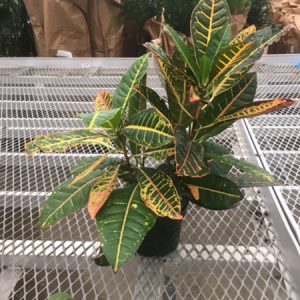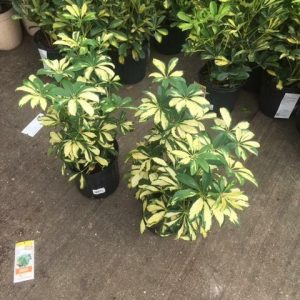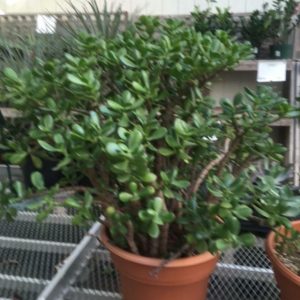Description
Scrophularia – Figwort –
There are about 200 subshrubs and herbaceous perennials, in the Scrophulariaceae family, in this genus. They are found naturally occurring in marshes, moist meadows, woodland, scrub, and drier waste land in the North Temperate regions, with a few species occurring in tropical North and Central America. Often coarse and unpleasantly scented, they have erect, square stems, opposite, simple or lobed elliptical leaves, and small, 2 lipped, foxglove-like, greenish yellow, purple, or red flowers, borne in terminal spikes. Suitable for a wild or woodland garden. S. auriculata may also be grown as a marginal aquatic plant.
Grow in humus rich, moist but well drained soil in dappled to partial shade. If S. auriculata and its cultivars are grown as marginal aquatic plants, submerge to about 6″ deep. Divide in spring.
Prone to slugs, caterpillars, weevils, downy mildew, Septoria leaf spot, and the larvae of some Lepidoptera species including Phymatopus hectoides.
S. auriculata ‘Variegata’ – S. aquatica ‘Variegata’ – Water Betony – Water Figwort -This marginal aquatic perennial, or moisture loving herbaceous perennial from Western Europe grows 24-36″ tall and wide. It produce erect, square stems that carry paired, lance shaped, wrinkled, toothed, leaves boldly marked with cream, up to 10″ long. From early summer to early autumn it bears panicle like cymes of 2 lipped, yellowish green flowers, to ½” long, each with a brown upper lip.
Zones 5-9




